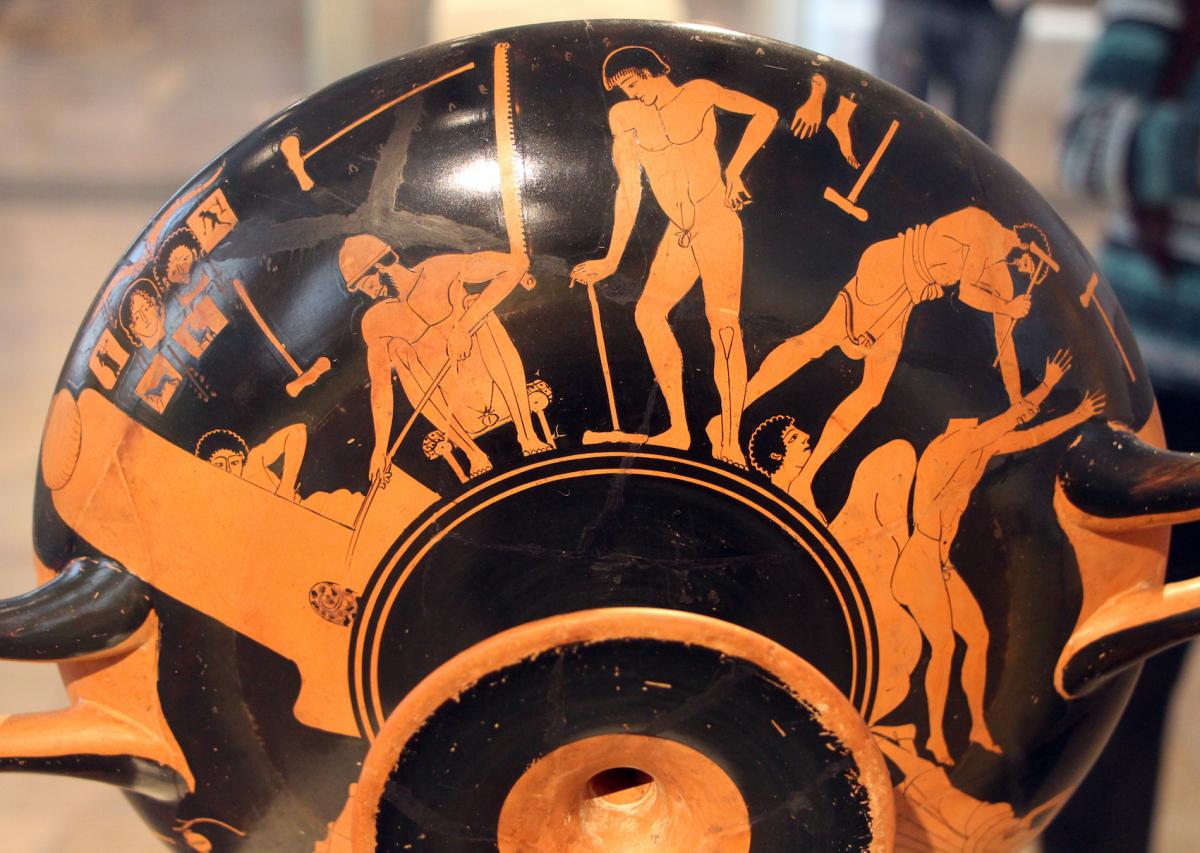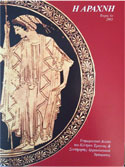November's word: Chalkeia

The Chalkeia was a religious festival taking place in Athens on the last day of the month Pyanopsiōn, November. Its name means the festival of the bronze workers and it derives from the term chalkos, bronze, chalkeus, meaning bronze worker. It probably goes back to the Bronze Age. The festival was dedicated to both Hephaistos and Athena Erganē together as protectors of arts, craftsmen and handiwork.
During the Festival, Athena’s priestesses and arrhēphoroi used to setup the loom in order to begin weaving the famous peplos, which was dedicated to the statue of Athena nine months later in the month Hecatombaion during the festival of Panathenaea.
The arrhēphoroi were young girls not older than seven years old, chosen by the archon basileus among four aristocratic Athenian families nominated by the Athenian people. These girls did not weave the peplos, but they participated in the setting of the loom and the beginning of the weave.
Σοφοκλής, Απ. 844.2 (Radt): “βᾶτ᾽εἰς ὁδὸν δὴ πᾶς ὁ χειρώναξ λεώς, | οἳ τὴν Διὸς γοργῶπιν Ἐργάνην στατοῖς λίκνοισι προστρέπεσθε”.
“Go on the way, all the manual workers, you who pray to Zeus’s daughter, the dreadful-eyed goddess of work”.


